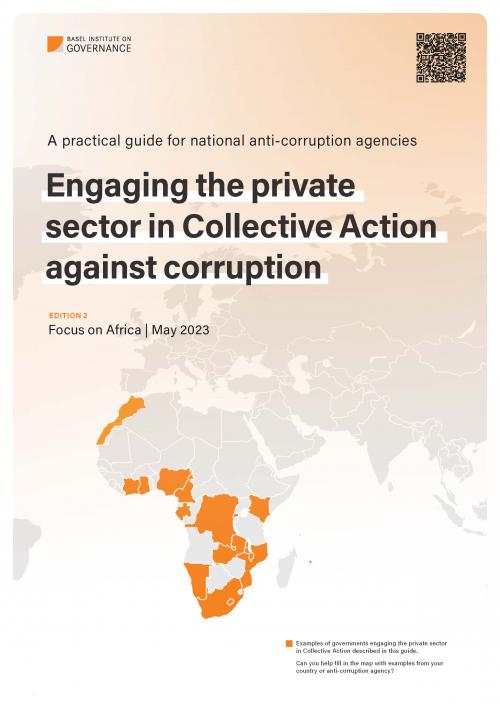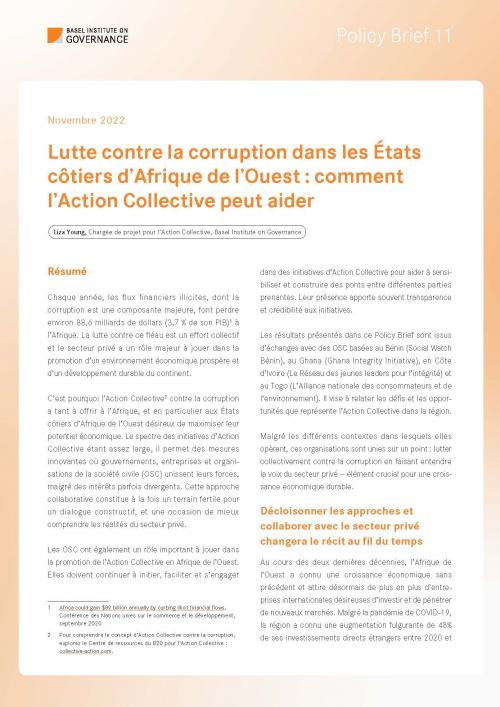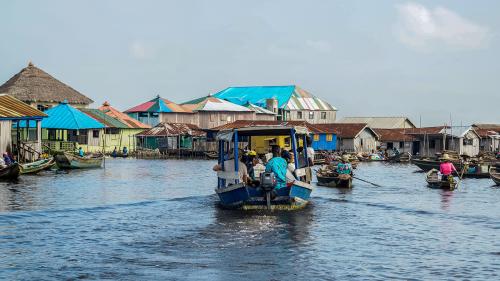At Christmas our thoughts turn to chocolate and Collective Action for cocoa

Chocolate and Christmas go together like holly and ivy, adding anti-corruption Collective Action into the cocoa supply chain would be a real sweetener.
Here’s a look at a Collective Action initiative that was signed in Ghana a few years ago. It would benefit not only from being updated and from being given a new focus that explicitly addresses corruption, not only as underpinning sustainability issues but in its own right and as an issue that should bring all the stakeholders together, because it’s a deep rooted issue that needs concerted efforts.
The Cocoa Board in Ghana has a range of responsibilities in an industry beleaguered by allegations of child labour, major deforestation, and impoverished farmers with poor prospects. The Board, which is the sole exporter of the commodity from Ghana, not only sets prices and obliges the local farmers to sell their cocoa to the Board; it also handles export duties on the cocoa; is tasked to support the farmers and should ensure that they receive essential fertilizers to improve crop production. In short, the Board is responsible for making sure that the stakeholders in Ghana benefit from the sale of this commodity on world markets, and that the industry contributes to the economic development of the country.
In order to purchase the cocoa, the Board obtains an annual bridging loan to buy from the farmers and then acts as the intermediary to sell cocoa to the global cocoa and chocolate producers who export the commodity for further trading or for processing into chocolate and cocoa products for sale around the world.
This powerful government body clearly has a key role in promoting prosperity in Ghana. In 2014 the Government of Ghana and the World Cocoa Foundation representing the major cocoa purchasers and cocoa commodity traders signed a Joint Declaration that describes a Collective Action between the largest chocolate and cocoa companies and the government with a focus on important sustainability issues relevant to the farmers and setting ambitious goals to be met by 2020. The Declaration makes no explicit mention of corruption or bribery.
In the meantime, the government that signed that Declaration has been voted out of office and Dr. Opuni, the CEO of Ghana’s Cocoa Board who signed on behalf of the previous government, has been accused of corruption and was removed from his post in January 2017.
The allegations against the former CEO are that he signed fraudulent multi-million dollar contracts and that there was a massive shortfall between the credit extended by the government and the amount of cocoa purchased. In some reports mention was made of some USD 400 million having gone ‘missing’. The CEO’s bank accounts and assets were frozen in February and in September it was reported that he would be standing trial for corruption.
In mid 2017 a World Bank report highlighted the need for reforms at the Cocoa Board. The report proposes modernisation of the cocoa value chain that would transform the role of the Cocoa Board from that of ‘major market player’ with its dominant role, ‘to one of enabler of certification, traceability, and inter-ministerial coordination towards improved landscape management including payments for environmental services.’ The Cocoa Board’s achievements and positive contribution to the cocoa sector are acknowledged in the report, but the supply of inputs such as fertilisers, pesticides, and seedlings to the cocoa farmers, is identified as being a source of uncertainty and inefficiency and subject to corruption and capricious political interference.
The multinational companies that purchase from the Cocoa Board have internal compliance programmes and anti-corruption standards that declare a ‘zero tolerance’ of corruption including in their supply chains. At the same time, these companies have to operate within the laws of the countries where they do business, and Ghana obliges them to buy from the Cocoa Board. The Board has a new CEO, but whether this change in management is sufficient to ensure that past misdeeds and structural weaknesses are overcome remains to be seen. Rather than waiting to see, or just taking a chance that all is well - and that legal and reputational risks are adequately addressed; the buying companies that constitute the Cocoa Foundation can take a more proactive approach.
The multinationals that comprise the Cocoa Foundation could re-work the 2014 Joint Declaration together with the Cocoa Board and other stakeholders so that they all seize the chance to make their ethical values and anti-corruption commitments effective throughout the supply chain in Ghana. A revised Declaration could become the basis for greater private sector participation in the sector and enable the Cocoa Board to leverage PPPs to foster technology transfers and address disease and pest control as suggested by the World Bank.
The ICCA offers its support to the stakeholders should they take up this opportunity to update and modernise their Joint Declaration in 2018.




